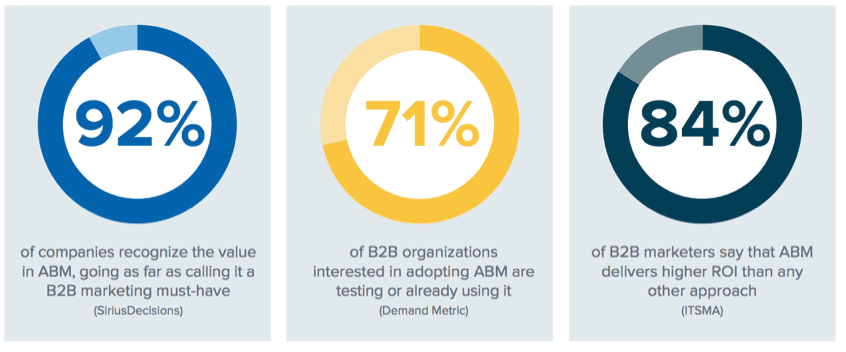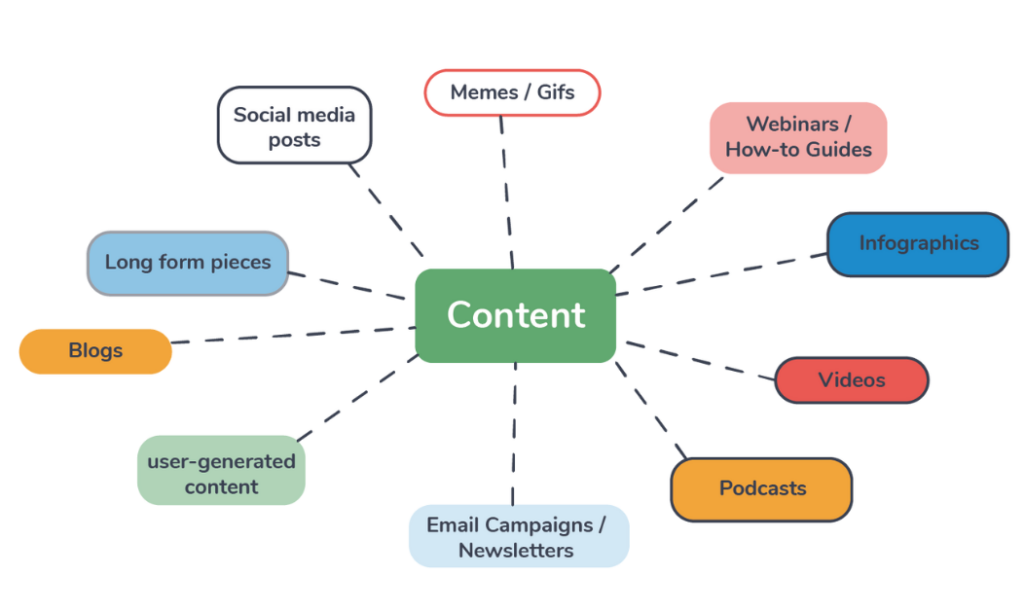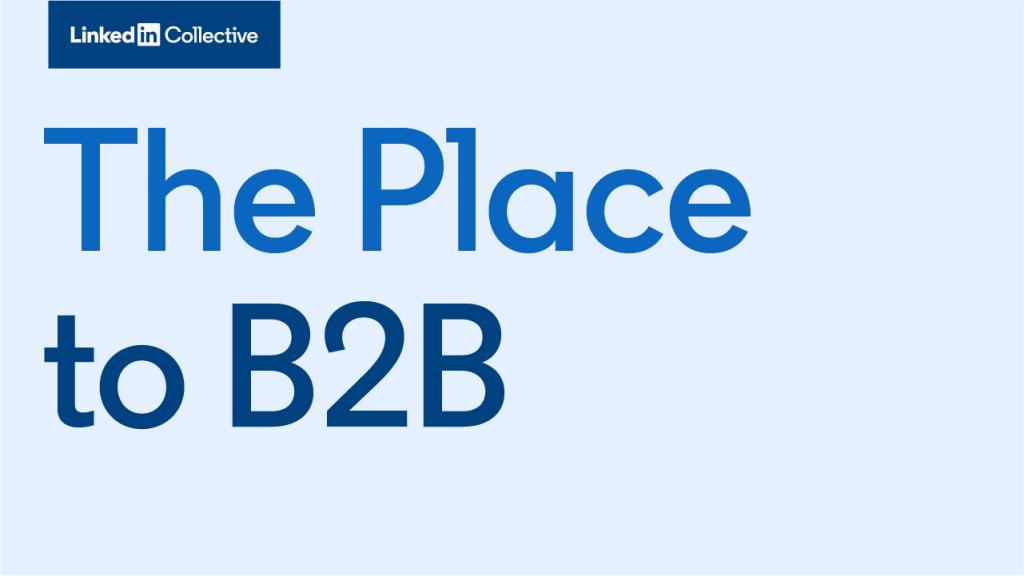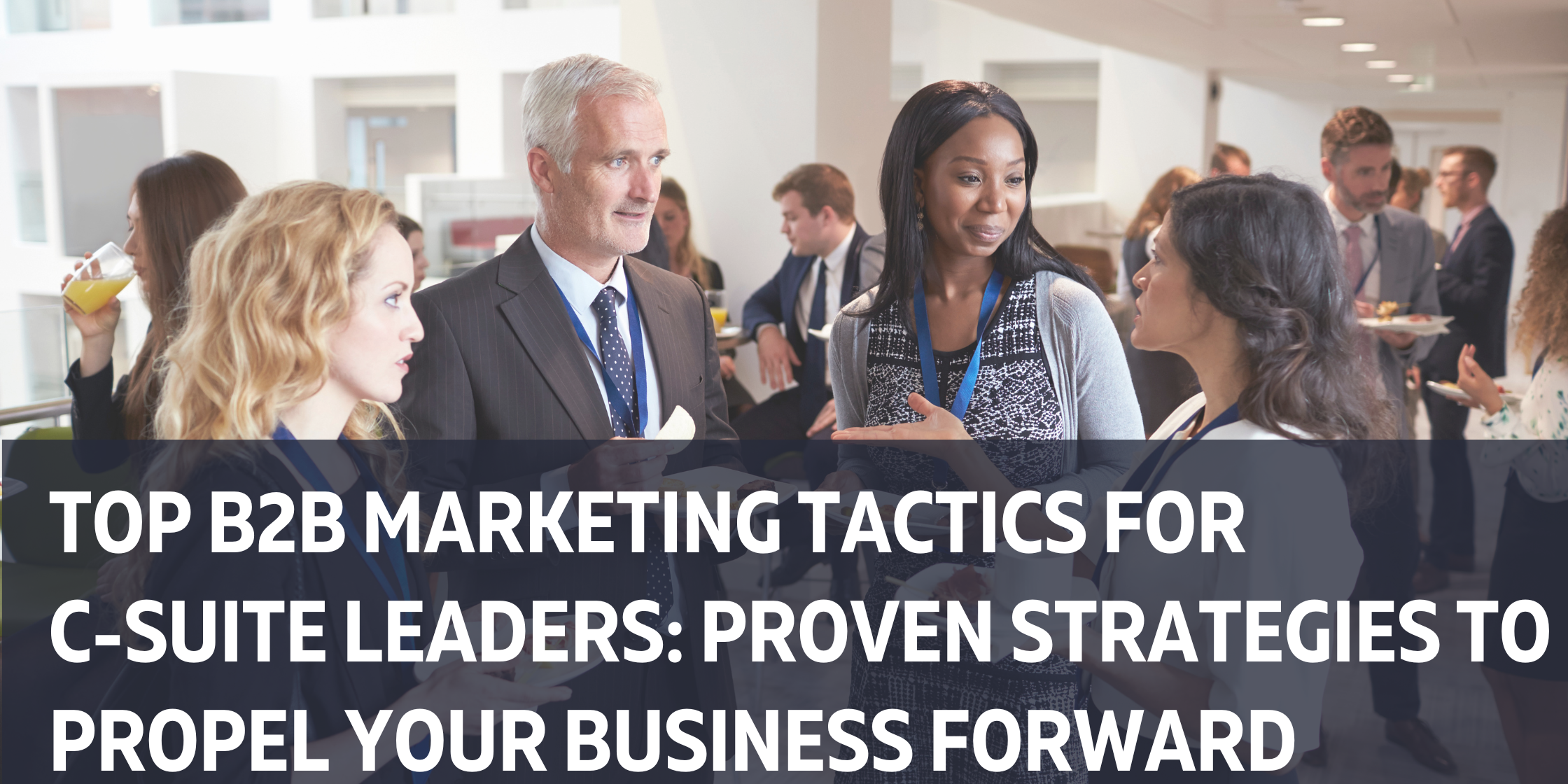Let’s face it: B2B marketing can often feel like navigating an endless maze. You’ve got multiple stakeholders, long sales cycles, and complex decision-making processes. It’s enough to make even the most seasoned C-suite executive break into a cold sweat! But here’s the good news—you’re not alone, and there are tried-and-true B2B marketing tactics that can help simplify the journey.
In this post, we’ll explore some of the most effective B2B marketing strategies that have consistently proven their worth. Whether you’re leading a startup or running a Fortune 500 company, these tactics can help you drive leads, convert prospects, and build lasting relationships with your clients. Ready to dive in?
Account-Based Marketing (ABM): Quality Over Quantity
Account-based marketing (ABM) is like the haute couture of marketing: it’s tailored, exclusive, and gets attention. ABM flips the script on traditional marketing, focusing on targeting specific high-value accounts rather than casting a wide net. For C-suite execs, this means you’re not wasting precious resources on leads that might never convert.

ABM works well because it’s personal. You’re speaking directly to decision-makers with messaging that addresses their unique challenges and needs. Not surprisingly, 97% of marketers say ABM has a higher ROI than other marketing tactics. The key is to align your sales and marketing teams to ensure you’re working toward the same goals and speaking the same language.
One tactic we lean hard on at Flourish is stakeholder interviews. We typically do a lot of this when we onboard a new client, and will suggest at least annual follow-on interviews as needed. Those selected include customers, potential customers, and even employees. This feedback is crucial to ensure you’re messaging is current, aligns with key painpoints and demonstrates what makes your brand unique compared to others.
Pro Tip: Personalize your outreach with specific case studies or tailored content that speaks to the challenges faced by your target account. It’s like knowing your audience’s favorite drink before they even walk into the bar!
Content Marketing: Educate and Elevate
In today’s digital world, content is king (we know, we know, you’ve heard that before, but hear us out). When done right, content marketing becomes more than just blog posts and white papers; it’s a way to educate your audience and position your brand as a thought leader.
For C-suite executives, it’s about leveraging content to speak directly to decision-makers’ pain points. Whether it’s through long-form blog posts, informative webinars, or in-depth eBooks, great content helps you build trust. And trust? Well, that’s the real currency of the business world.
Take Salesforce as a prime example. Their blog isn’t just a series of product pushes—it’s a goldmine of valuable insights on leadership, sales strategy, and the future of technology. As a result, they’ve not only built a product empire but also a community of engaged professionals who turn to them for knowledge.
And keep in mind, that one peice of stellar content can result in a TON to be used elsewhere – so think intentionally about scale and have your team think about ways to slighly differentiate that blog post into something else.

Pro Tip: Build an editorial calendar that addresses your audience’s most pressing concerns and develop content to support it that way you’re adding value without them asking for it. Need help with ideas? Refer back to those stakeholder interviews or hop on a call with a customer and record it; that transcription will undoubtedly lend to ideas.
LinkedIn: The Powerhouse of Professional Networking
When it comes to B2B marketing, LinkedIn is no longer just for job-hunting. It’s a powerful marketing tool that allows you to engage with industry leaders, decision-makers, and influencers. A study by HubSpot found that LinkedIn is 277% more effective at generating leads than Facebook and Twitter.
We have an absolute love of LinkedIn at Flourish, and why wouldn’t we? It allows us to get in front of key decision makers with captivating content that adds value, while providing helpful ideas to their biggest pain points. The platform has come a long way, too, and unlike any other social media platform out there.
Additionally, what makes LinkedIn stand out is its ability to combine organic reach with highly targeted advertising. Through its paid ad platform, you can zero in on your ideal audience using filters like industry, job title, and company size. Combine that with posting valuable content that speaks to your audience’s needs, and you have a recipe for success.

Pro Tip: Encourage your C-suite team to engage personally on LinkedIn. When executives share insights, comment on posts, or publish thought leadership articles, it humanizes the brand and builds credibility. Think of it as leadership in action—digitally!
Webinars: Your Secret Weapon for Lead Generation
Let’s be honest: no one really enjoys webinars. They can be long, tedious, and sometimes end up in the “what-did-I-just-sit-through?” category. But when done right, webinars are an incredible tool for demonstrating your expertise and building relationships with potential clients.
Webinars give your company a platform to showcase its knowledge, provide valuable insights, and interact directly with prospects. And the best part? You can repurpose webinar content into blog posts, social media snippets, and email campaigns, making it a multi-channel asset.
For example, Gartner regularly hosts webinars tailored for senior executives on topics like digital transformation and emerging trends. These aren’t just sales pitches; they’re informative, actionable, and laser-focused on providing value.
Pro Tip: Keep your webinars short and interactive. The C-suite doesn’t have time for fluff, so make sure every minute counts by focusing on data-driven insights and actionable takeaways.
Email Marketing: Oldie but a Goodie
Yes, email marketing is still alive and kicking! It may not be the newest tactic on the block, but it’s still one of the most effective—especially for B2B marketing. The key here is to focus on personalization and nurture campaigns. According to McKinsey, email is 40 times more effective at acquiring new customers than Facebook or Twitter.
The challenge is that your audience’s inboxes are busier than Times Square at rush hour, so your email must stand out. This means crafting compelling subject lines, providing valuable content, and making sure each email is highly personalized to the recipient’s role, company, and pain points.
Companies like Slack have mastered the art of email marketing. Their emails are concise, visually appealing, and speak directly to the user’s needs. Instead of bombarding inboxes with daily messages, they focus on sending relevant, engaging content at the right time.
Pro Tip: Segment your email list based on personas or sales funnel stages. This ensures your messaging is always relevant and targeted.
Wrapping It Up: Building Trust and Delivering Value
The most successful B2B marketing strategies are all about building relationships and delivering value. It’s crucial to prioritize tactics that not only drive leads but also position your brand as a trusted advisor. After all, people don’t just buy products or services; they buy solutions to their problems.
By leveraging ABM, content marketing, LinkedIn, webinars, and email marketing, your business can attract high-quality leads, shorten sales cycles, and most importantly, create meaningful relationships that lead to long-term success.
So, what are you waiting for? Get out there and start executing these tactics with confidence—and if you need a hand, be sure to give us a shout.
P.S. If you ever need a friendly reminder that marketing is a marathon, not a sprint, just remember: Rome wasn’t built in a day, but they sure were laying bricks every hour.

